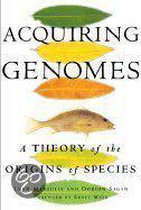The Language of Thought A New Philosophical Direction
Afbeeldingen
Sla de afbeeldingen overArtikel vergelijken
Auteur:
Susan Schneider
- Engels
- Hardcover
- 9780262015578
- 29 april 2011
- 272 pagina's
Susan Schneider
"Susan Schneider is an American philosopher. She is a professor of philosophy and cognitive science at The University of Connecticut, a fellow at the Institute for Ethics and Emerging Technologies, and a faculty member in the Ethics and Technology Group at the Yale Interdisciplinary Center for Bioethics, Yale University.
(Bron: Wikipedia. Beschikbaar onder de licentie Creative Commons Naamsvermelding/Gelijk delen.)"
(Bron: Wikipedia. Beschikbaar onder de licentie Creative Commons Naamsvermelding/Gelijk delen.)"
Samenvatting
A philosophical refashioning of the Language of Thought approach and the related computational theory of mind. The language of thought (LOT) approach to the nature of mind has been highly influential in cognitive science and the philosophy of mind; and yet, as Susan Schneider argues, its philosophical foundations are weak. In this philosophical refashioning of LOT and the related computational theory of mind (CTM), Schneider offers a different framework than has been developed by LOT and CTM's main architect, Jerry Fodor: one that seeks integration with neuroscience, repudiates Fodor's pessimism about the capacity of cognitive science to explain cognition, embraces pragmatism, and advances a different approach to the nature of concepts, mental symbols, and modes of presentation. According to the LOT approach, conceptual thought is determined by the manipulation of mental symbols according to algorithms. Schneider tackles three key problems that have plagued the LOT approach for decades: the computational nature of the central system (the system responsible for higher cognitive function); the nature of symbols; and Frege cases. To address these problems,] Schneider develops a computational theory that is based on the Global Workspace approach; develops a theory of symbols, the algorithmic view ; and brings her theory of symbols to bear on LOT's account of the causation of thought and behavior. In the course of solving these problems, Schneider shows that LOT must make peace with both computationalism and pragmatism; indeed, the new conception of symbols renders LOT a pragmatist theory. And LOT must turn its focus to cognitive and computational neuroscience for its naturalism to succeed.
Productspecificaties
Wij vonden geen specificaties voor jouw zoekopdracht '{SEARCH}'.
Inhoud
- Taal
- en
- Bindwijze
- Hardcover
- Oorspronkelijke releasedatum
- 29 april 2011
- Aantal pagina's
- 272
- Illustraties
- Nee
Betrokkenen
- Hoofdauteur
- Susan Schneider
- Hoofduitgeverij
- Mit Press Ltd
Overige kenmerken
- Extra groot lettertype
- Nee
- Studieboek
- Nee
- Verpakking breedte
- 137 mm
- Verpakking hoogte
- 22 mm
- Verpakking lengte
- 203 mm
- Verpakkingsgewicht
- 408 g
EAN
- EAN
- 9780262015578
Je vindt dit artikel in
- Categorieën
- Taal
- Engels
- Boek, ebook of luisterboek?
- Boek
- Studieboek of algemeen
- Studieboeken
Kies gewenste uitvoering
Bindwijze
: Hardcover
Prijsinformatie en bestellen
Rapporteer dit artikel
Je wilt melding doen van illegale inhoud over dit artikel:
- Ik wil melding doen als klant
- Ik wil melding doen als autoriteit of trusted flagger
- Ik wil melding doen als partner
- Ik wil melding doen als merkhouder
Geen klant, autoriteit, trusted flagger, merkhouder of partner? Gebruik dan onderstaande link om melding te doen.








